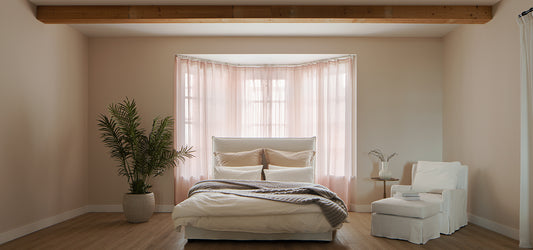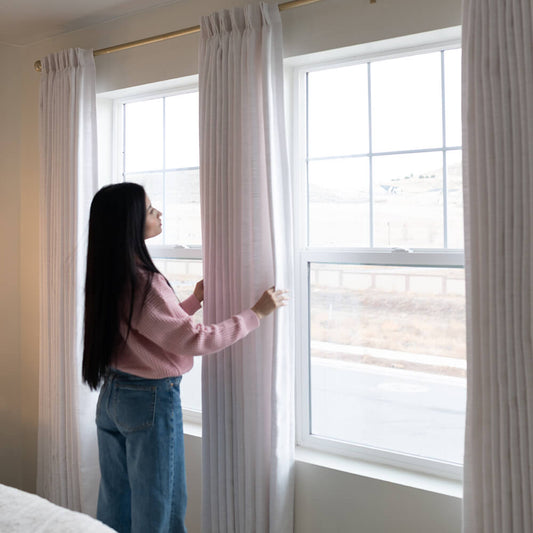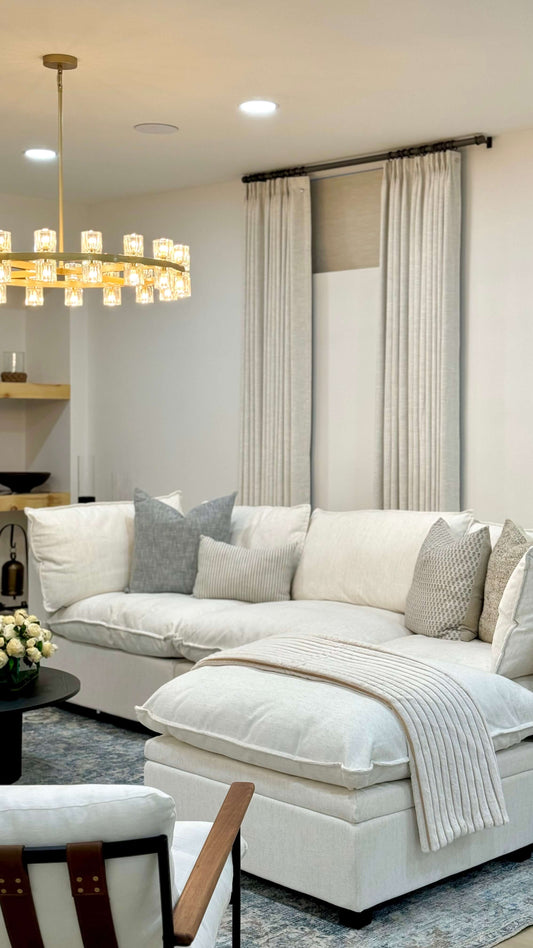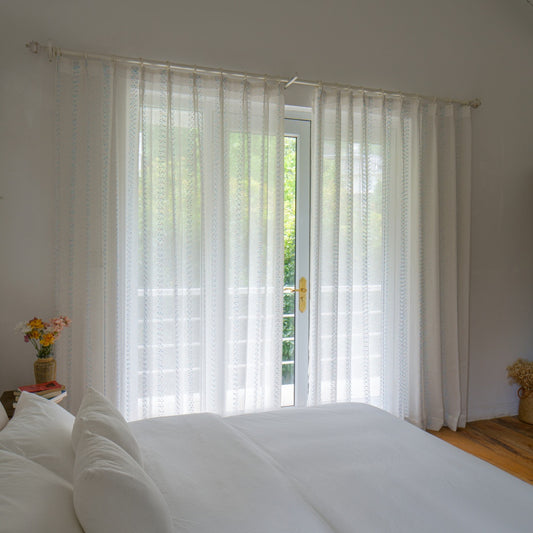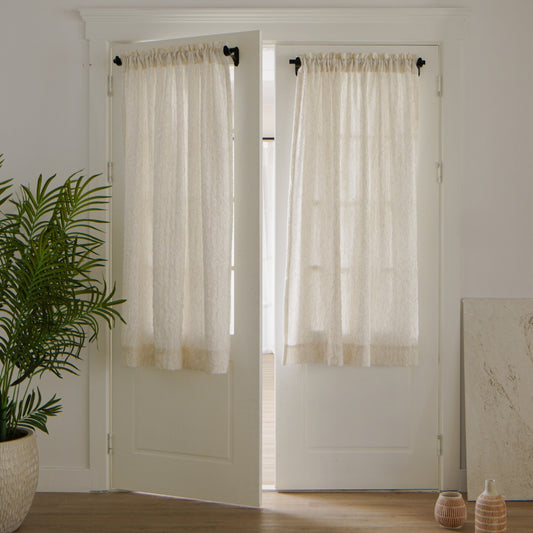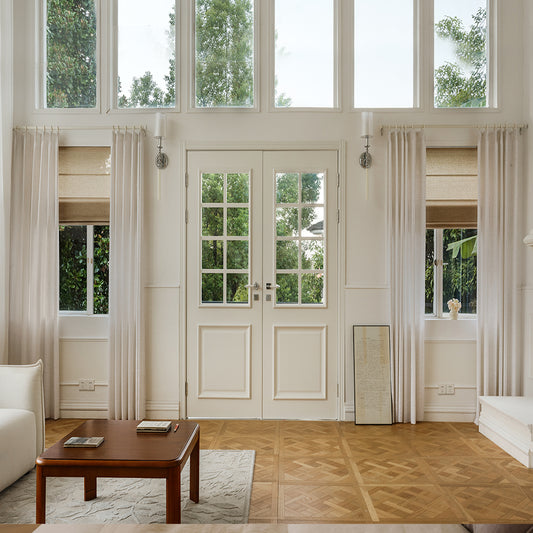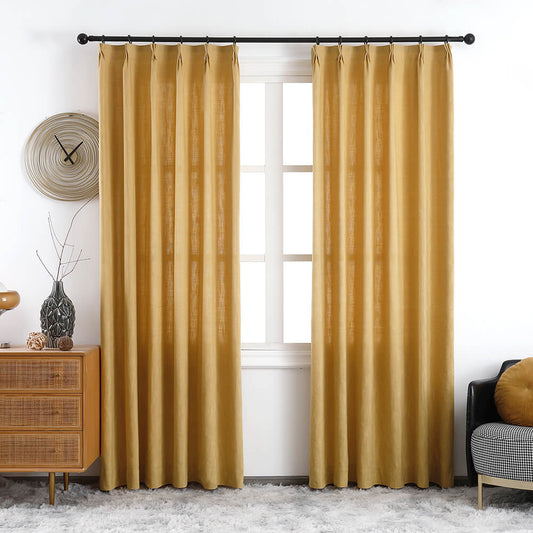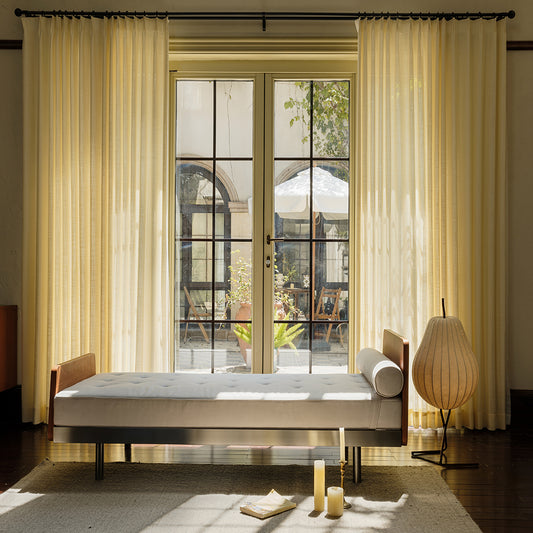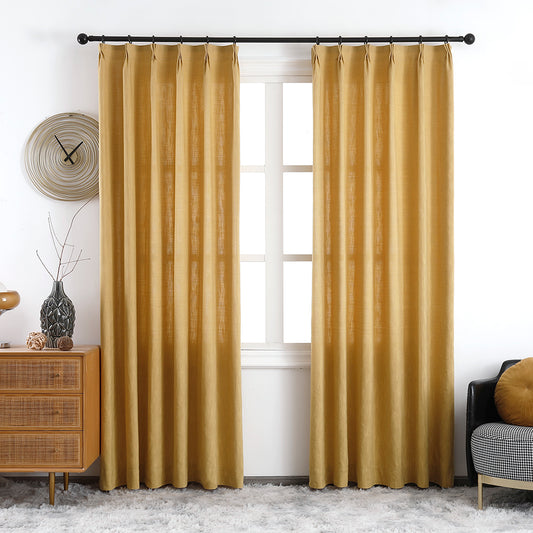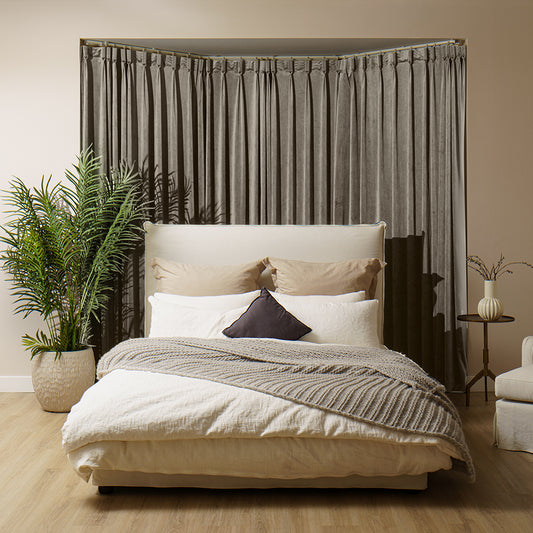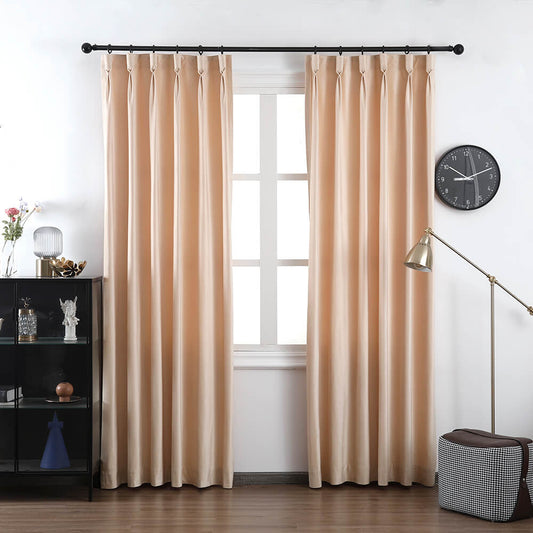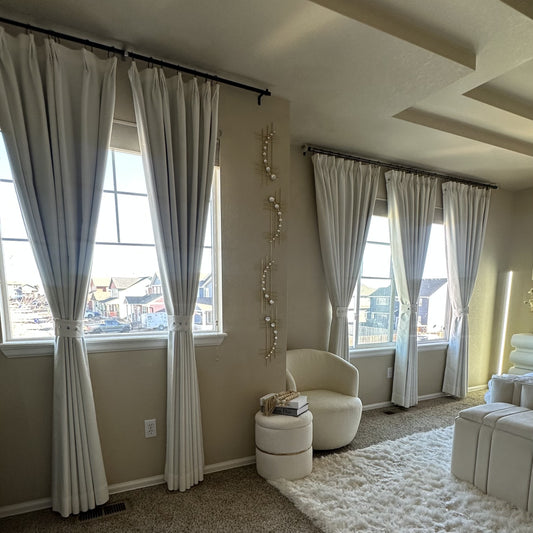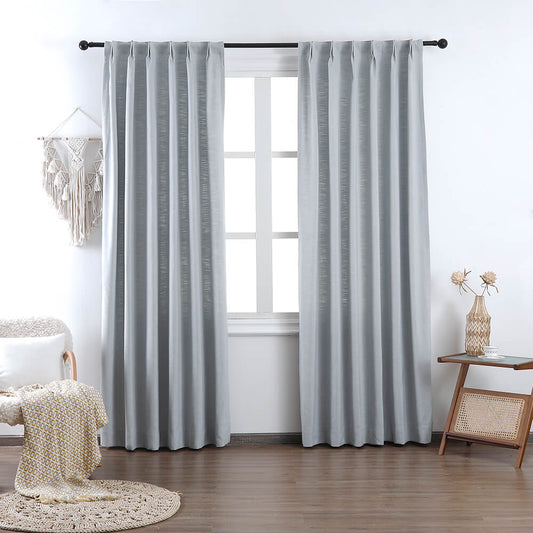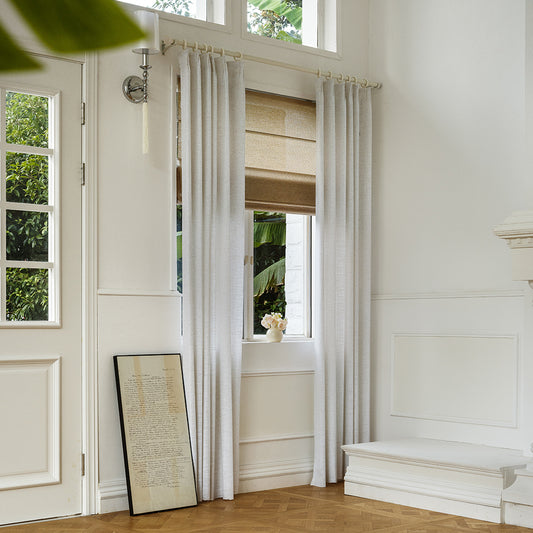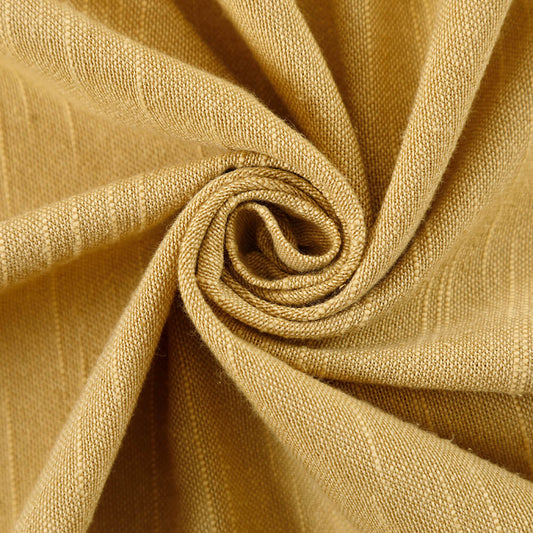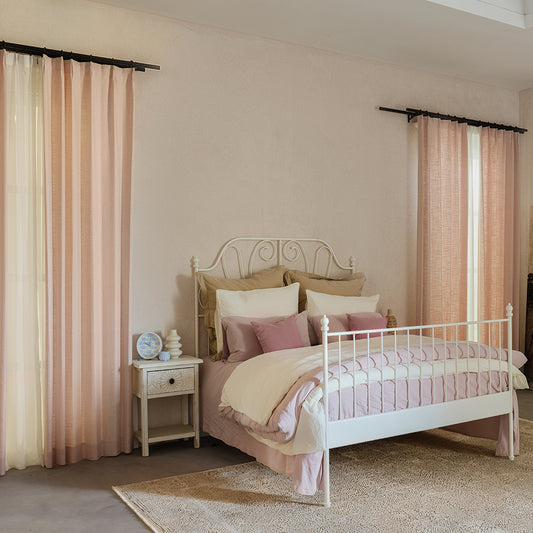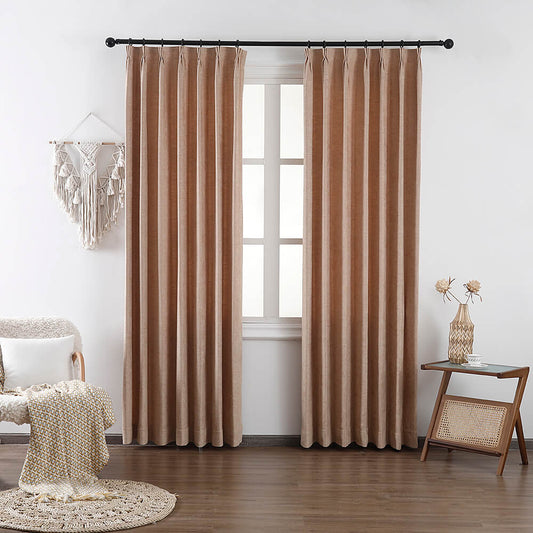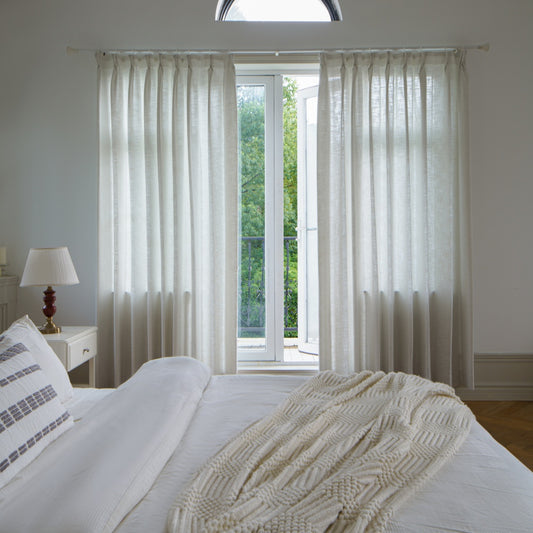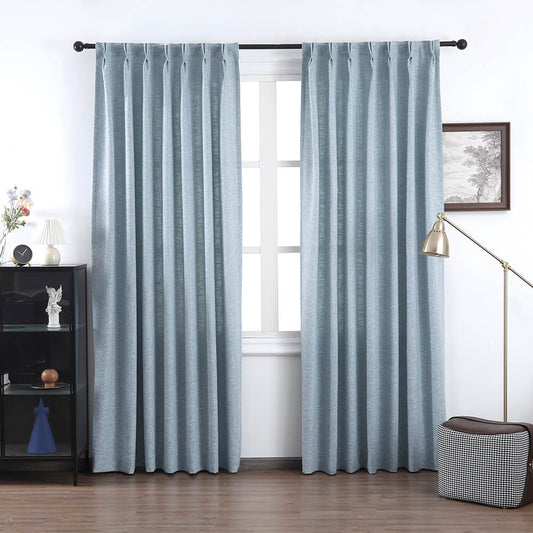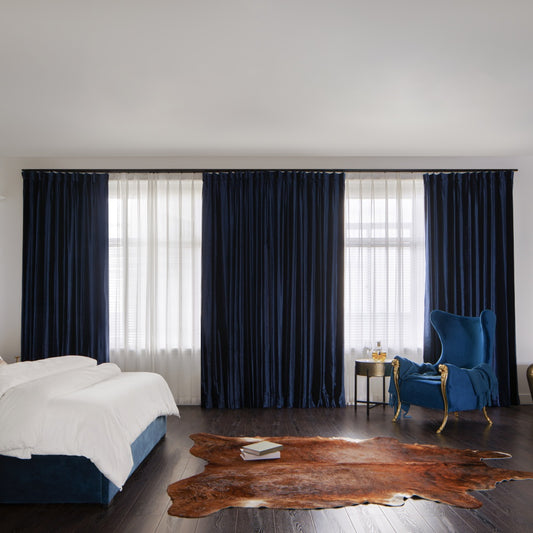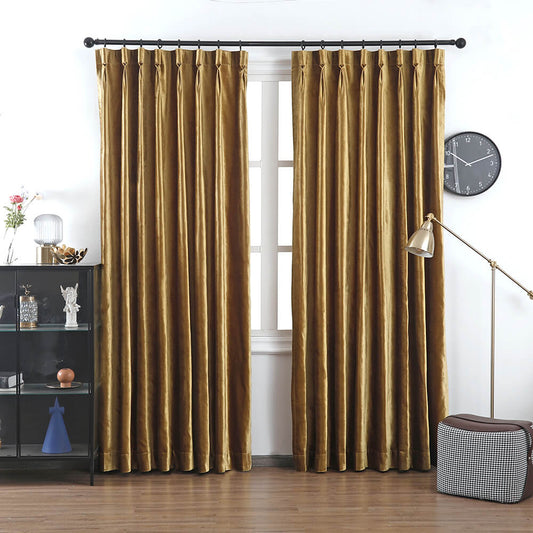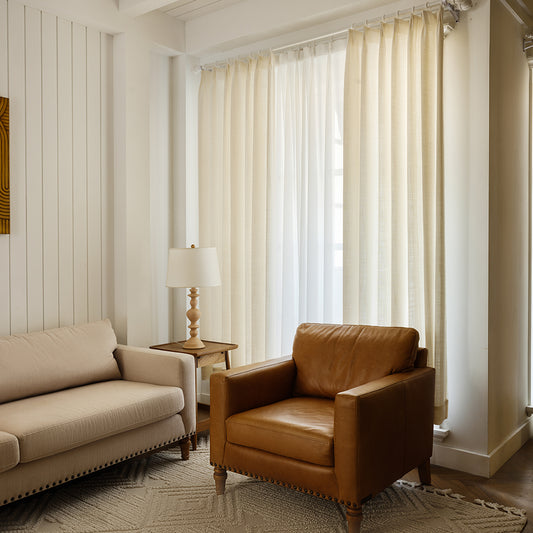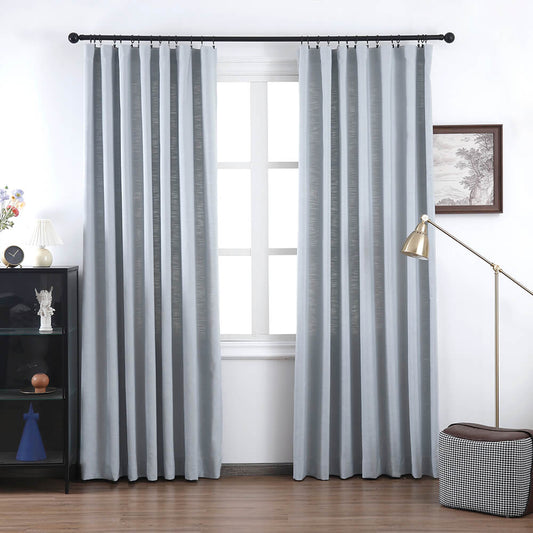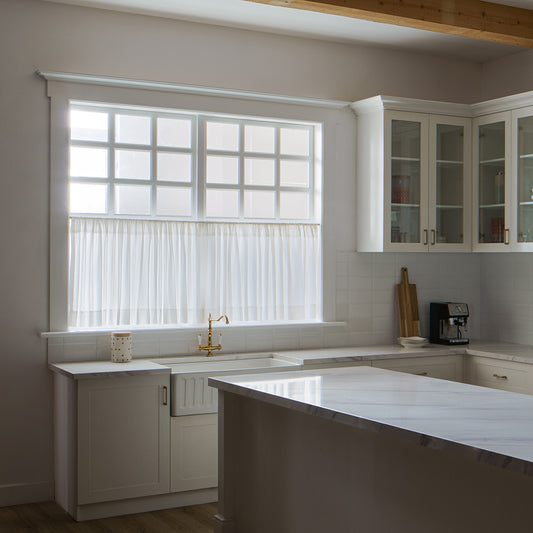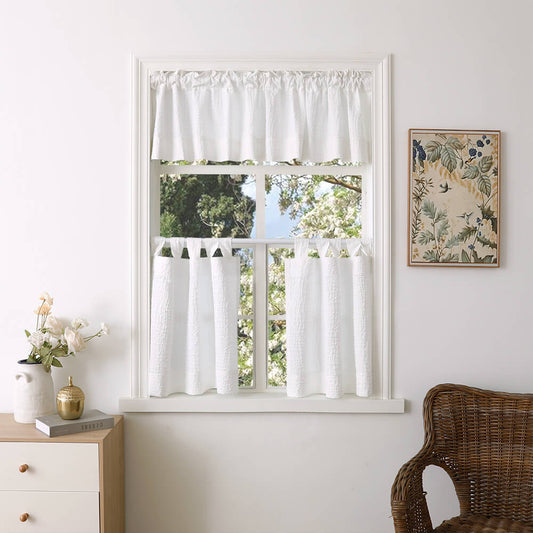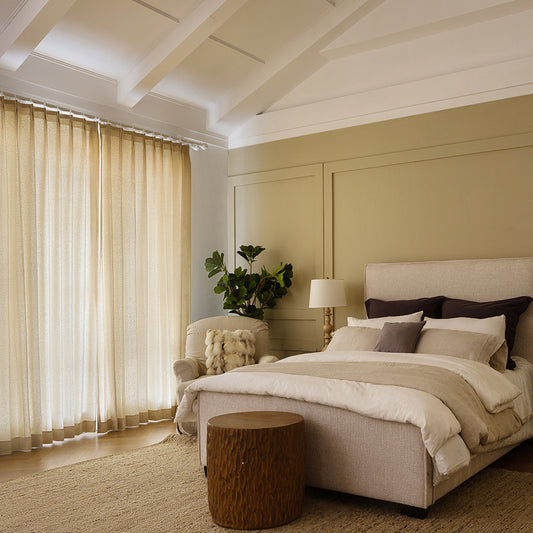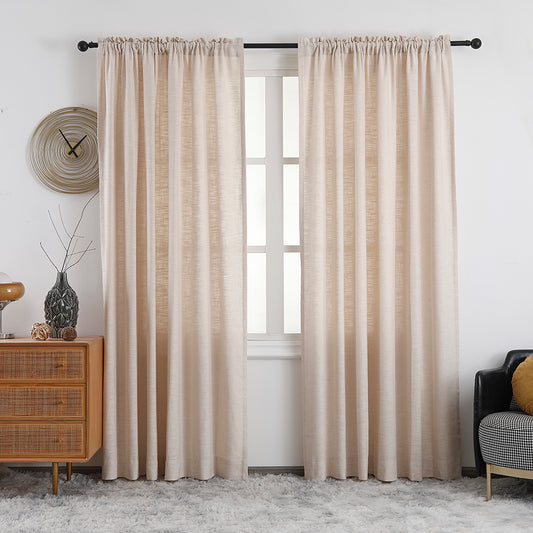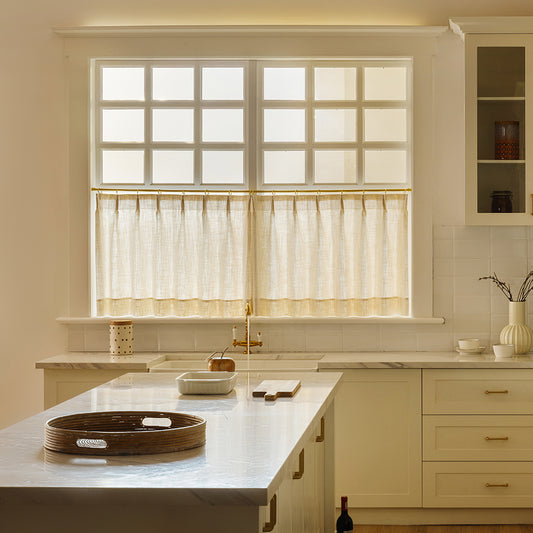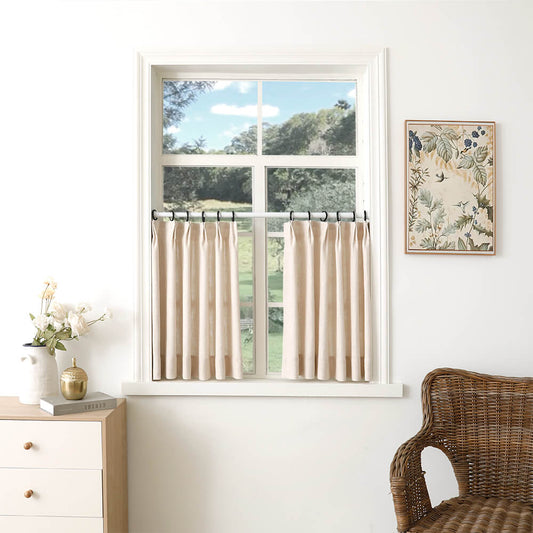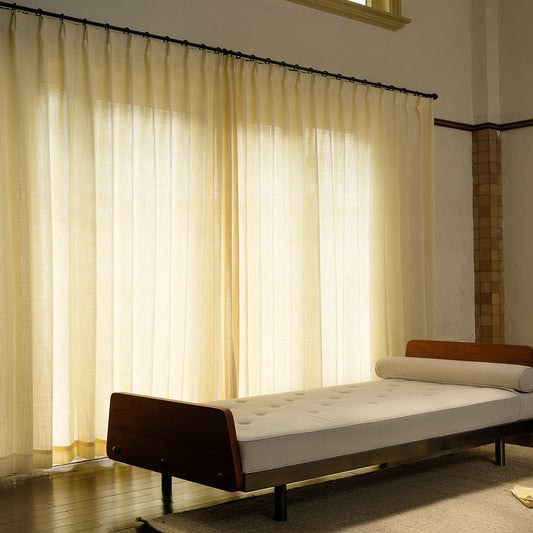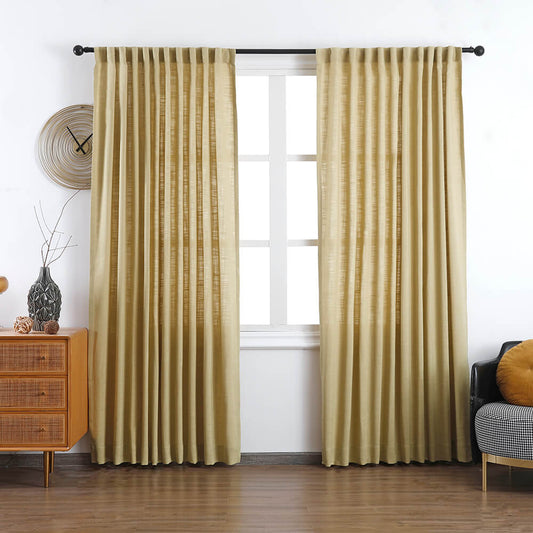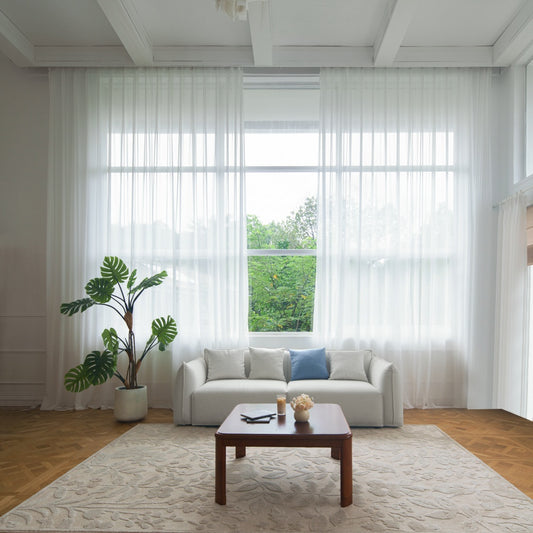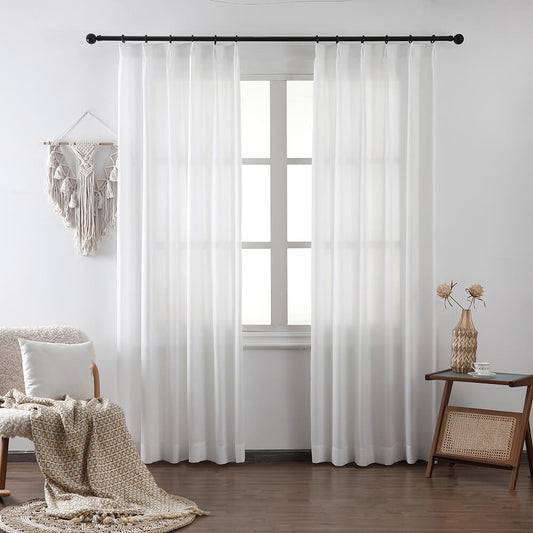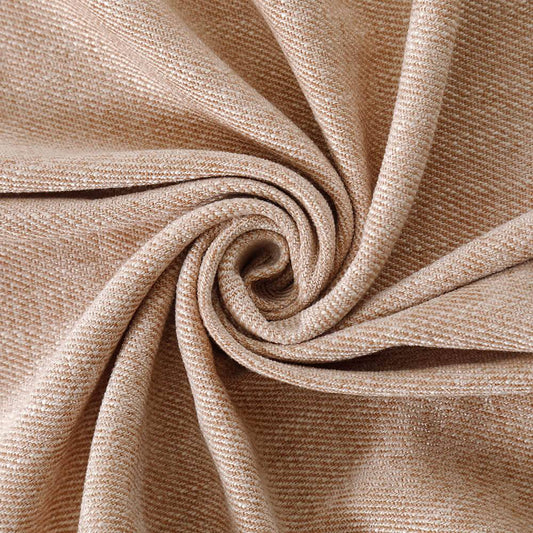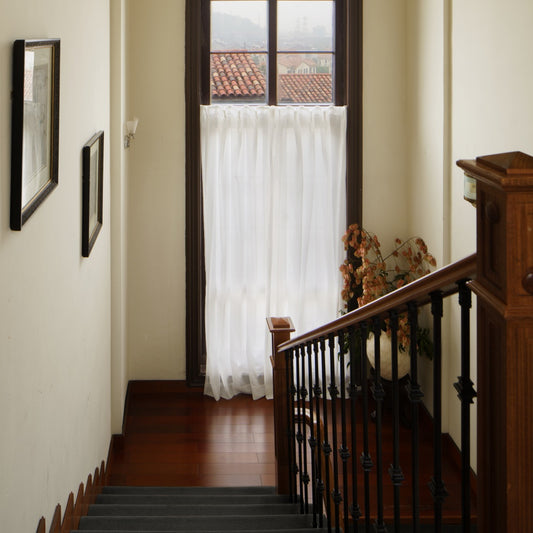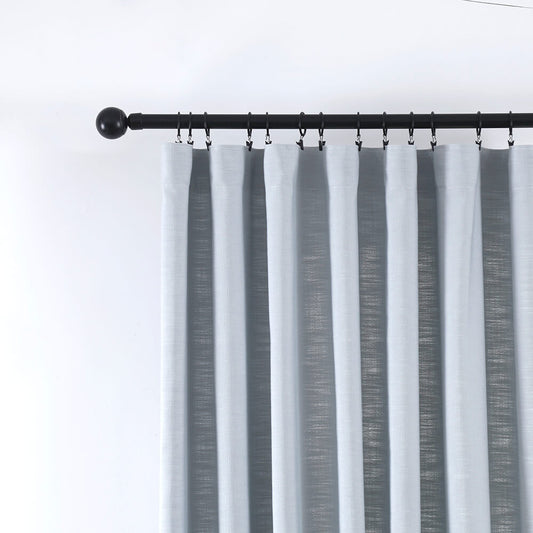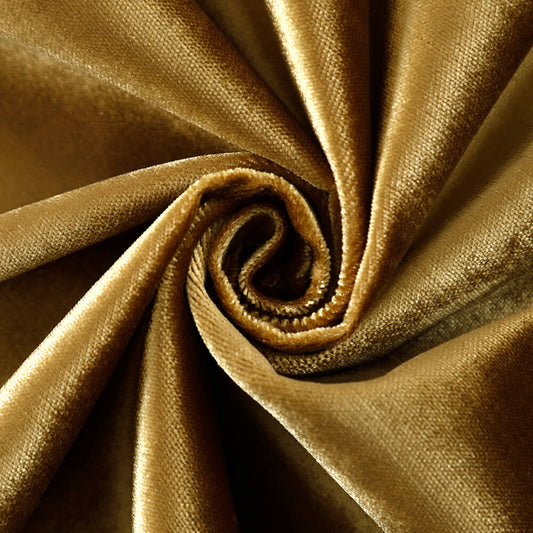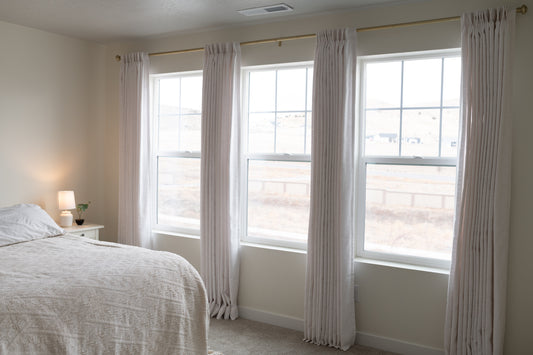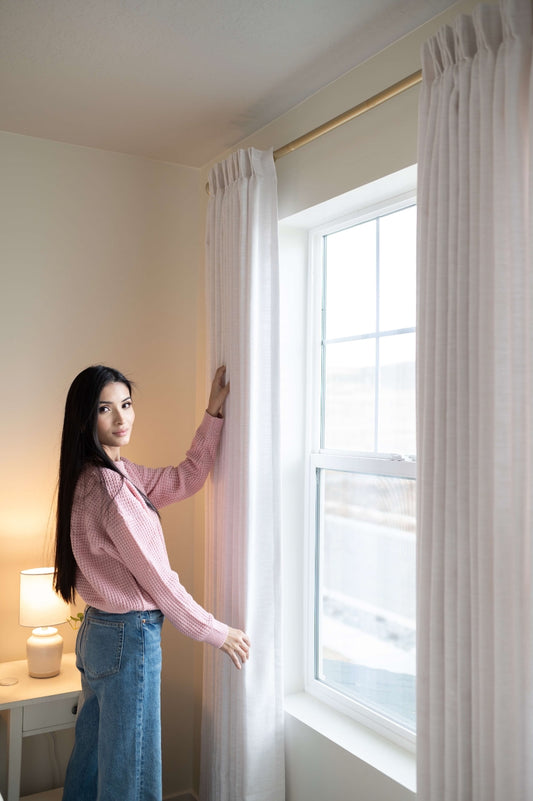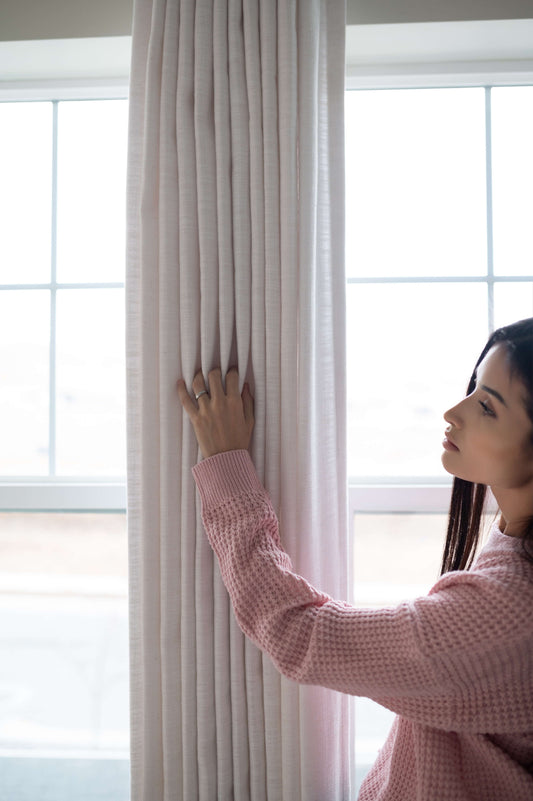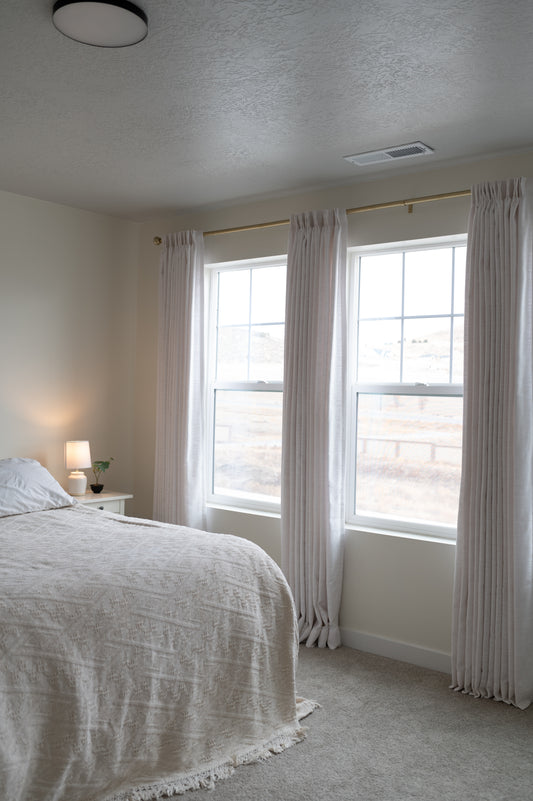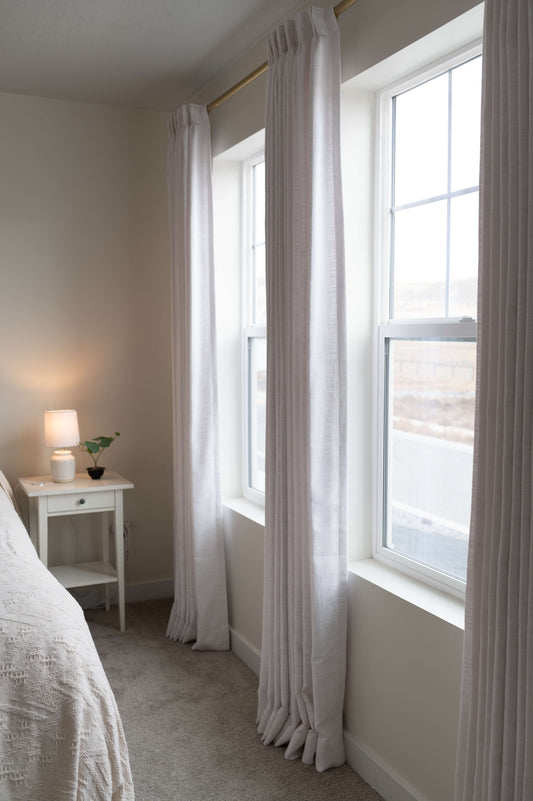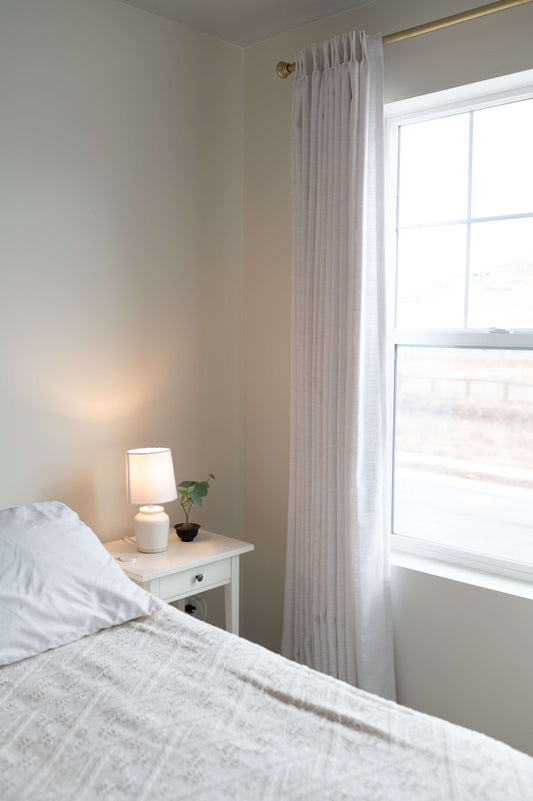How To Blend Curtains With Mid-Century Modern Style?
Blending curtains with mid-century modern (MCM) style requires emphasizing clean lines, organic textures, and minimalist patterns. Opt for lightweight fabrics like linen or wool blends in earthy tones (mustard, olive, burnt orange) or muted neutrals. Avoid heavy drapes—choose flat-panel designs or subtle pleating. Prioritize functional hardware like matte black rods or wood finials. VeilVeil’s Olivia linen drapes exemplify this with tapered silhouettes and thermal insulation, balancing retro charm and modern practicality.
What defines mid-century modern curtains?
Mid-century modern curtains emphasize simplicity and organic minimalism. They avoid ornate details, favoring flat-weave fabrics, geometric patterns (subtle chevrons, atomic motifs), and natural fibers like hemp or cotton-linen blends. Pro Tip: Pair them with streamlined rods—brass or teak—to mirror MCM furniture’s sleek profiles.
True MCM design prioritizes function. Curtains should frame windows without overwhelming the space. For example, VeilVeil’s Luna Sheer Serenity curtains use unlined linen to diffuse light softly, mimicking the era’s indoor-outdoor fluidity. Transitional phrases like “Beyond aesthetics” or “Practically speaking” tie this to hardware choices—think thin metal brackets instead of bulky valances. A common mistake? Using heavy blackout drapes, which clash with MCM’s airy ethos. Instead, opt for layered sheers and roller shades.
| Material | MCM Fit | VeilVeil Example |
|---|---|---|
| Linen | High (breathable, textured) | Olivia 100% Linen |
| Cotton Blend | Moderate (durable, casual) | Madison Cotton-Poly |
| Wool | Low (bulky, rare) | N/A |
How to choose mid-century color palettes for curtains?
MCM curtains thrive in earthy tones (ochre, sage) and bold accents like teal or rust. Neutrals like cream or slate gray anchor brighter furniture. Pro Tip: Pull colors from MCM accent walls—curtains should complement, not compete.
Ask: What’s the room’s focal point? If you have a vibrant Eames lounge chair, choose muted beige curtains. For neutral spaces, VeilVeil’s Ava Linen Roman Shades in terracotta add warmth without overwhelming. Transitional advice: “Beyond color theory” leads to texture—nubby fabrics add depth even in monochrome setups. A 1960s-inspired living room might pair amber-toned sheers with walnut trim, creating cohesion.
| Color Type | MCM Role | VeilVeil Picks |
|---|---|---|
| Earthy Tones | Base Layer | Olive, Mustard |
| Muted Neutrals | Balance | Slate, Cream |
| Accent Hues | Pop | Teal, Burnt Orange |
What curtain materials align with mid-century modernism?
Natural, breathable fabrics like linen, cotton, and wool blends define MCM curtains. Avoid synthetics—they lack the tactile authenticity of 1950s-60s interiors. Pro Tip: Sheer materials maintain airiness, critical for MCM’s open layouts.
Mid-century design celebrates raw textures. For example, VeilVeil’s Lena Linen Blend curtains replicate the nubby feel of vintage Danish textiles. But what if your room needs blackout options? Opt for dual layers: linen sheers over neutral roller shades. Transitional phrases like “In practice” or “Consider this” highlight functional trade-offs—privacy vs. light diffusion. A sunlit reading nook benefits from semi-sheer wool, filtering glare while preserving warmth.
Can patterned curtains work in mid-century spaces?
Yes, but patterns must be subtle and geometric. Think small-scale diamonds, atomic starbursts, or irregular grids. Avoid florals or damask—they skew traditional. Pro Tip: Use patterns sparingly; let them echo shapes in MCM decor (e.g., rug motifs).
How much is too much? A single patterned curtain panel can anchor a room without chaos. Imagine VeilVeil’s Neonest Roman Blinds with a faint hexagonal print against teak cabinetry. Transitional advice: “Beyond prints” leads to color blocking—pair solid curtains with a bold-painted accent wall. Ever seen an Eichler home? Their clerestory windows demand simple drapes, letting architecture shine.
How to pair curtain hardware with MCM aesthetics?
Choose minimalist rods in matte black, brass, or teak. Avoid ornate finials—opt for disk-shaped ends or angled caps. Pro Tip: Ceiling-mounted tracks maintain clean sightlines, ideal for floor-to-ceiling drapes.
Hardware should whisper, not shout. For instance, VeilVeil’s VeilVeil Madison curtains use slim, oil-rubbed bronze rods to complement tulip tables. But what about tension rods? They’re too casual for most MCM setups. Transitional phrases like “Practically speaking” or “Here’s the deal” reinforce the need for proportional brackets—thin rods (¾” diameter) suit smaller windows. A pro trick: Match metal finishes to lighting fixtures (brass rods with brass sconces).
Can I mix mid-century curtains with other styles?
Yes, if done strategically. Blend MCM curtains with industrial elements (exposed brick) or Scandinavian minimalism. Avoid clashing eras like Victorian ruffles. Pro Tip: Use neutral curtains as a bridge—linen grays soften industrial metals.
Imagine MCM linen drapes in a loft with steel beams—textural contrast heightens both styles. VeilVeil’s Madison Cotton-Poly curtains in ash gray balance a farmhouse table’s rustic edge. But how to ensure cohesion? Repeat a single MCM material elsewhere, like a leather chair. Transitional advice: “Think holistically” means curtains shouldn’t feel isolated—echo their hues in adjacent decor.
VeilVeil Expert Insight
FAQs
Yes, typically. MCM favors light-filtering fabrics. For privacy, layer VeilVeil’s Neonest motorized blinds behind linen sheers.
Should mid-century curtains touch the floor?Yes—opt for a ½” break (just grazing the floor) to elongate windows and align with MCM’s tailored ethos.
Can I use grommet tops in MCM design?No. Grommets feel too contemporary. Choose back-tab or rod-pocket styles for a period-accurate look.
